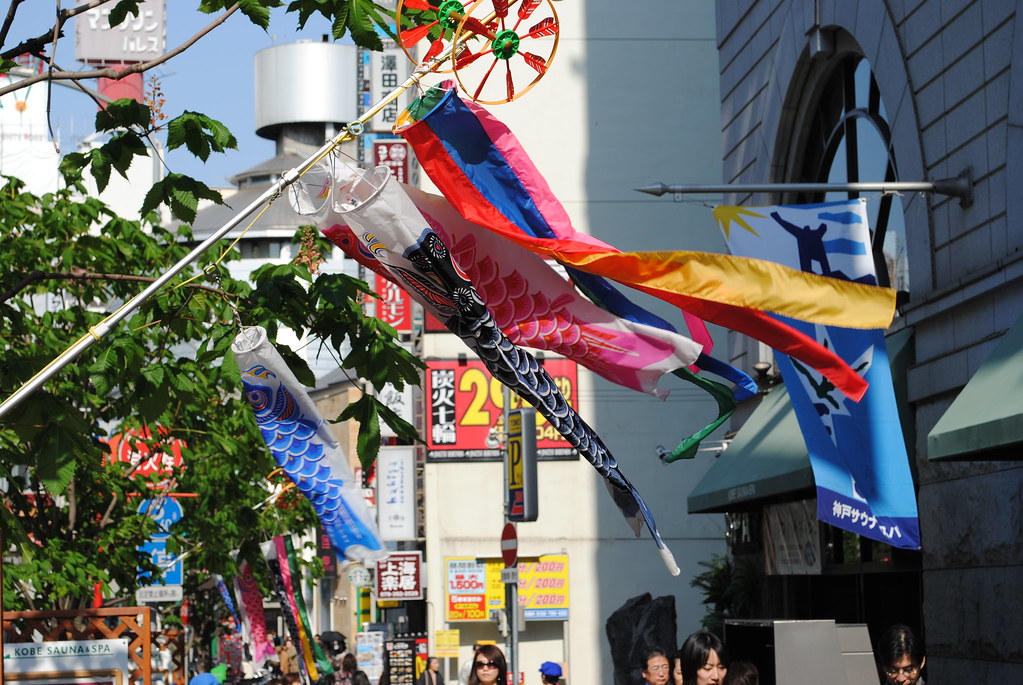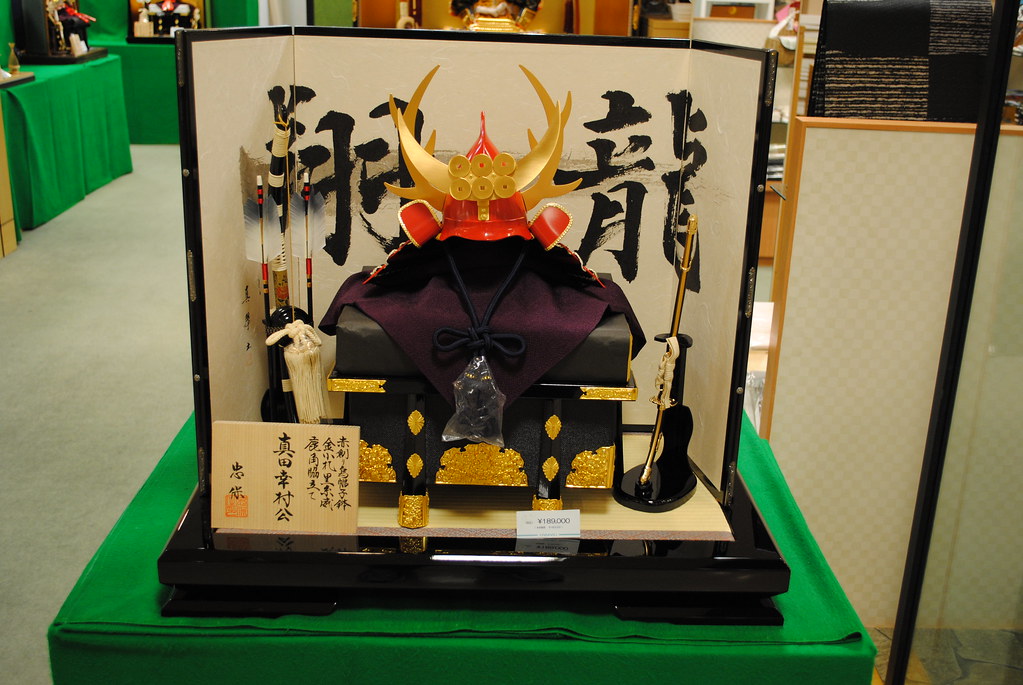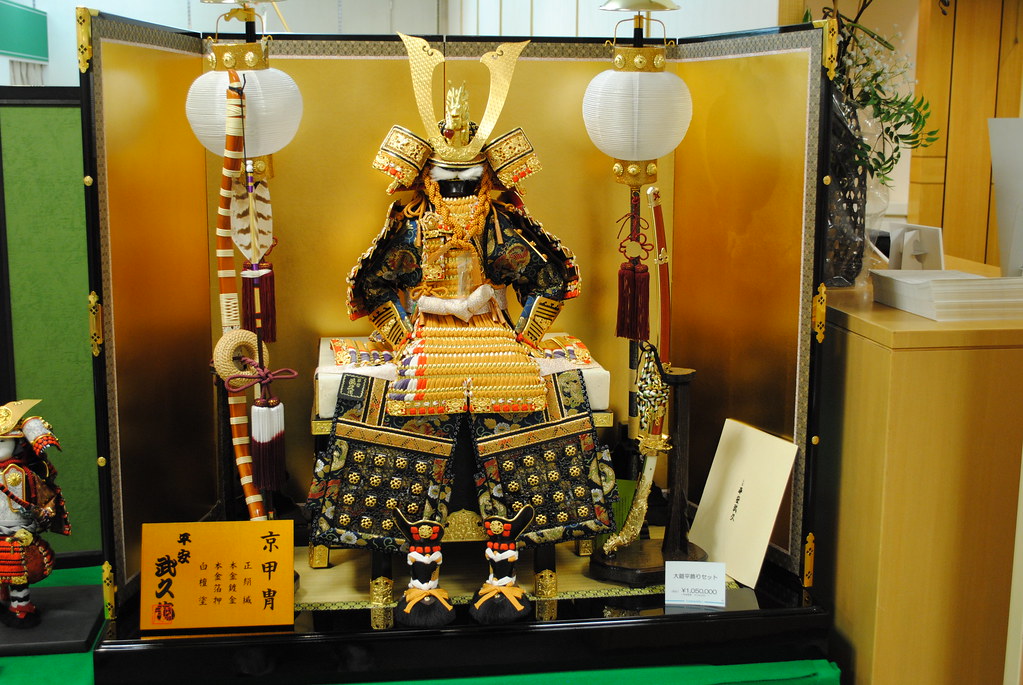ゴールデンウィーク (often shortened to the letters "GW" in Japan) is arguably the biggest holiday season in Japan, along with お盆 (おぼん - Obon) in mid-August and シルバーウィーク (Silver Week) in mid-late September. GW is basically a string of public holidays spanning from late April to early May that usually mean at least five days off work. It's the perfect excuse for Japan to pack her bags and go just about everywhere else you can imagine for a well-earned break. The only problem with travelling during GW is that everyone else has the same idea!
GW contains four public holidays, which fell on the following days of the week this year.
April 29th (Thurs) - 昭和の日 (しょうわのひ - shouwa no hi - The Day of Showa)
May 3rd (Mon) - 憲法記念日 (けんぽうきねんび - kenpoukinenbi - Constitution Day)
May 4th (Tues) - みどりの日 (みどりのひ - midori no hi - Greenery Day) and
May 5th (Weds) - こどもの日 (こどものひ - kodomo no hi - Children's Day).
A lot of people also take the day after 昭和の日 (April 30th this year) and the Thursday and Friday after こどもの日 (May 6th and 7th) off, which gives them an impressive 11 days off in a row. Apparently some companies even close during GW, but the shops certainly don't! Giant posters and banners plaster all the shops days in advance, advertising the huge savings to be had during their "GWセール" (GW seeru - Golden Week sales). It's all a bit like this, really, but if you look hard enough you can spot some telltale signs of the tradition behind the holiday season.
昭和の日 used to be known as 天皇誕生日 (てんのうたんじょうび - tennou tanjoubi - The Emperor's Birthday) until Emperor Hirohito's death. The current Emperor's birthday is December 23rd, so that's now 天皇誕生日 and the 29th of April was renamed 昭和の日 to commemorate the 昭和 era (1926-1989). 憲法記念日 marks the anniversary of the Japanese Constitution and encourages reflection on democracy. みどりの日, as the name suggests, is a day you're supposed to appreciate nature. I'm not sure how much any meaning comes through these days in real terms though. They may be a bit like Foundation Day and the Queen's Birthday back home - days off work, more than anything.
The exception though, may be こどもの日. Officially, it's a day to honour and respect all children, but unofficially it's considered "Boys' Day" - an answer to 雛祭り (ひなまつり - hinamatsuri - the "Doll Festival" or "Girls' Day", on the 3rd of March). This is where the 鯉幟 (こいのぼり - koinobori - carp streamers) you may have seen come from, flying outside families' houses.
Each carp represents a member of the family - traditionally, the black one is dad, red is mum and blue represents the children. More recently though, people have been adapting this slightly and putting up more carp - using blue for just the oldest child and one smaller carp (green, usually) for each younger one. Flapping in the breeze, they're supposed to look like carp swimming upstream. Tradition, I'm told, says that carp that manage to swim all the way upstream will make it into the sky and become dragons. What pride in their dragon children must carp parents have!
The other interesting thing about こどもの日 is the stands of miniature 鎧 (よろい - yoroi - samurai armour) and 兜 (かぶと - kabuto - helmets) that pop up in shops. Like 雛祭り, seasonal decorations are put in Japanese homes for good fortune. In the case of 雛祭り, each year displays of dolls are placed out and decorated for the girls in the house, whereas こどもの日 has displays like this one.
I'm told that these are often bought by grandparents, given as gifts when the parents' first son is born and placed out on the baby's first こどもの日. Both the 兜 and 鎧 represent strength and are placed out in hope of the boy growing up strong and healthy. These can range from fairly small and unimposing like the one above, to full sets with glittering gold, minute embroidery and incredible detail like this one.
Have a look at the price tag - it's over $12,000! I have a feeling your son would end up like the Incredible Hulk if you put something like this up every year.
You might forget why all this is happening when you're trying to find a hotel or waiting in line, of course - ゴールデンウィーク is infamous for its unbelievable crowds as well. That's to be expected though - it's one of the few times of the year when the Japanese truly down tools and have a nice break. For some, that's probably all it means, but it's also a time of reflection and tradition. So if you do find yourself out and about, trying to jam yourself into a train or stuck in a line of traffic, let your mind wander to calming thoughts of democracy, nature and smiling children. And vow next time to just stay home and hit the sales.



No comments:
Post a Comment
If you have any questions or additions, I would love to hear from you. I may not know the answer, but I'll do my best to find out in any case! You can post anonymously if you like, but abusive/unintelligible/inappropriate comments will not be published.